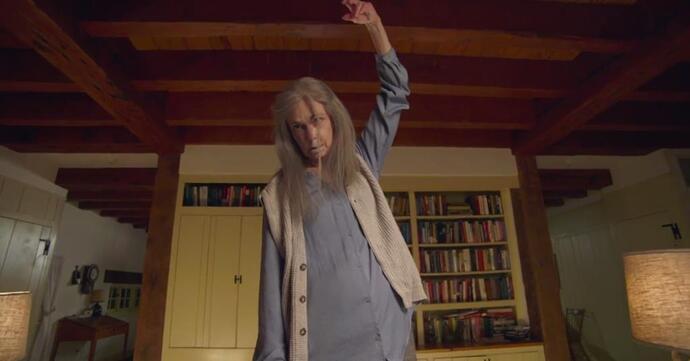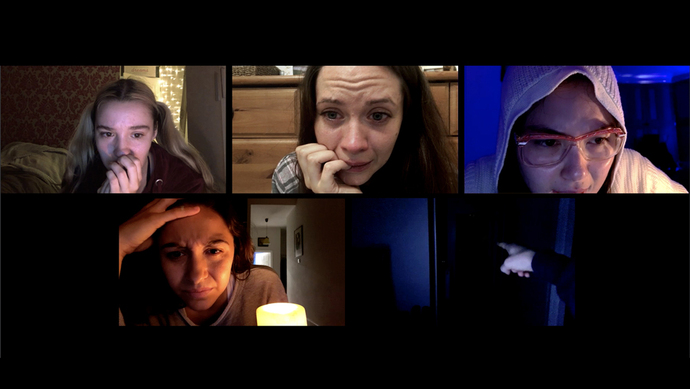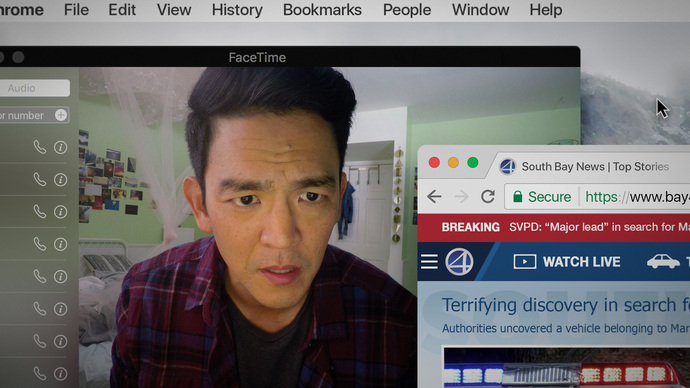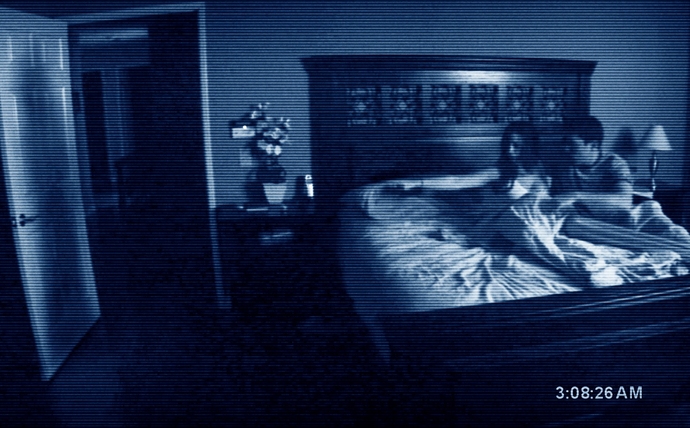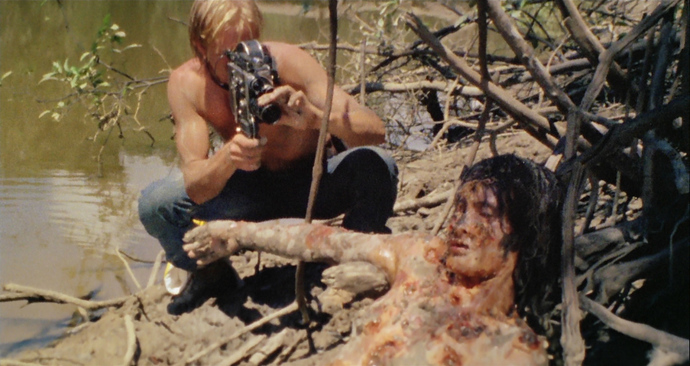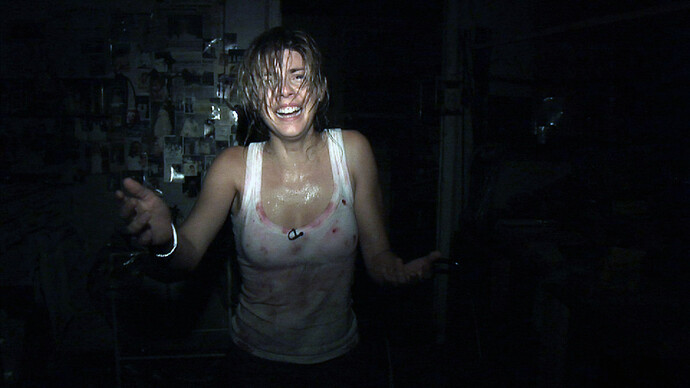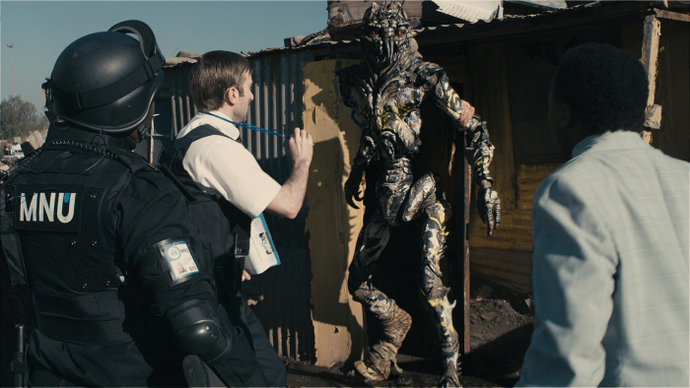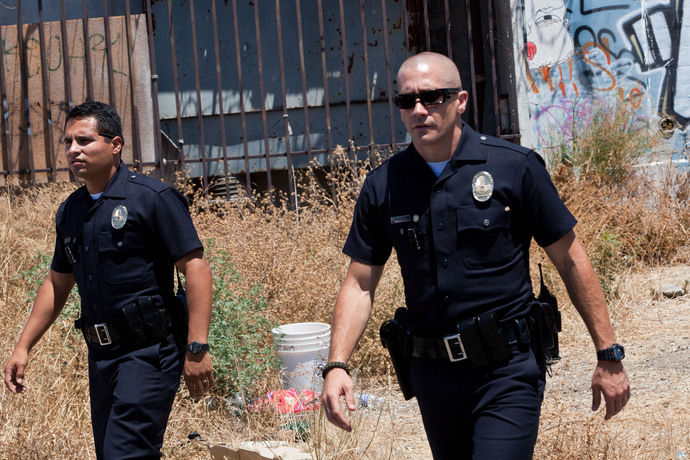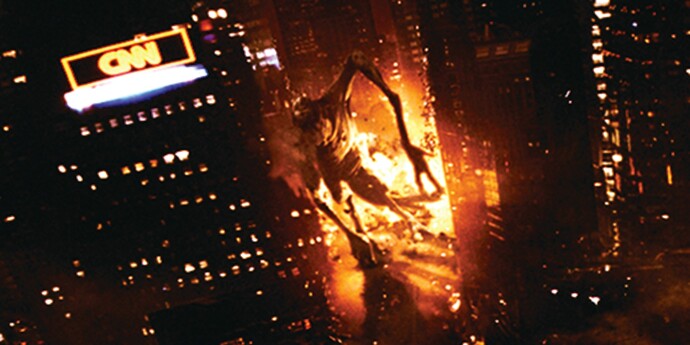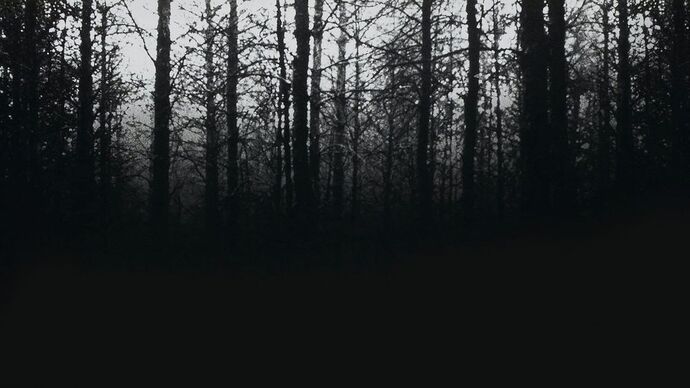As the genre’s name suggests, found footage films imitate the look of old home movies, so they’re relatively quick and easy to make. The visuals are wholly unimpressive next to Hollywood blockbusters, but that’s part of the charm. Of course, found footage cinema is saturated by amateurs and shortcut horrors, so the bulk of it is quite terrible—but when done well, the found footage appproach can elevate a story and make it feel more authentic. These are few and far between. Here are our picks for the best found footage movies that make the most of the approach and make you feel like you’re experiencing a truly authentic story play out right before your eyes.
10. The Visit (2015)
M. Night Shyamalan has a healthy canon of successful horror-thrillers, but The Visit marked a change of pace for the filmmaker. It’s still a horror, but it’s also a comedy. It’s an odd blend, with the first cut resembling an arthouse film, the second a flat-out comedy, and final one this black-comedy-horror-thriller-found-footage… thing. In The Visit, two young siblings visit their estranged grandparents at their isolated farmhouse. From this alone, The Visit already smells of Hansel and Gretel. I mean, any isolated farmhouse is a no-go. Becca (played by Olivia DeJonge) and Tyler (played by Ed Oxenbould) decide to film the whole visit, seeing it as a new adventure. But when they show the videos to their mother, she reveals they aren’t her parents at all. So, who are they?
9. Host (2020)
Computer screen movies are an even smaller niche within the found footage genre, mostly made up of mediocre films like 2014’s Open Windows and 2018’s Unfriended: Dark Web. After all, there’s only so much you can do with a single desktop screen, so these films are usually all the same: a creepy atmosphere and a mystery story where you aren’t sure who you’re talking to. Directed by Rob Savage, the British supernatural horror Host unfolds over a group call between friends when they accidently become involved in an evil online séance. Host is one of the more successful webcam movies, taking place entirely through screen recordings of Zoom video calls. It started out as a skit that went viral on social media, which Rob Savage then turned into a feature-length film. Most of the cast from the skit returned for the movie, using their own cameras and lighting to film from their homes.
8. Searching (2018)
Searching isn’t exactly a found footage film, but the whole thing is capture using phone screens and computer screens, so it evokes the same kind of feeling. Plus, it was the first Hollywood film to cast an Asian-American lead, so we’re including it. Aneesh Chaganty’s Searching stars John Cho as David, who’s trying to find his missing 16-year-old daughter. All of his searching is shown via his phone and computer as he uses streaming sites, phone records, and CCTV footage to track down his daughter. Despite the 2D cinematography of Searching, the cast were hailed for their extraordinary performances. The whole film was seamlessly edited together and earned double its predicted box office figures. Creating a heart-racing, bare-knuckle thriller is hard enough through ordinary means, and that makes Searching a real triumph. Originally a short film, Searching paved the way for films like Host to be made despite pandemic restrictions.
7. Paranormal Activity (2007)
Paranormal Activity has not one but six sequels, making it the biggest found footage franchise on this list. As usual with these kinds of franchises, the first film is undoubtedly the best. Paranormal Activity was directed, and written, and produced, and filmed, and edited by Oren Peli. Talk about a jack of all trades! Set in San Diego, 2006, Paranormal Activity follows Katie in her desperate attempt to catch a ghost on camera. She’s been tormented by this spirit since childhood, so she uses Ouija boards and night-cams to lure it out and face off with it once and for all. Originally an indie flick, Paranormal Activity was acquired by Paramount Pictures and given a hot new finale. It ended up being the most profitable film of all time—of any film, not just horror. No surprise as to why the franchise is milked so heavily with sequels.
6. Cannibal Holocaust (1980)
The found footage genre spreads far and wide across the globe, meaning many of them are international and co-production films. Italy is the home of the infamously gruesome horror flick Cannibal Holocaust, which added yet another entry to the string of cannibal-themed movies to come out of Italian exploitation cinema. The Mondo film subgenre gained momentum during the 1970s, sparking controversy throughout the world for its fetish with the taboo. Ruggero Deodato’s Cannibal Holocaust is the most significant film about cannibals, with the director arrested on obscenity charges. For Cannibal Holocaust, Deodato was inspired by Italian media coverage of Red Brigades terrorism, using his film to criticize sensationalist modern TV broadcasters.
5. REC (2007)
REC isn’t just one movie; it’s the starts of a series of four found footage films captured on video camera. Jaume Balagueró and Paco Plaza are the brains behind this Spanish zombie-horror series, the first of which takes place in Barcelona. Ángela Vidal (played by Manuela Velasco) is a reporter filming overnight for the fictional TV show While You’re Sleeping. She and her cameraman are following a pair of firefighters on their way to rescue an old woman, who turns out to be a homicidal zombie. The virus grants superhuman strength to the infected, and it continues to plunge society into crisis across three sequels. The original REC is considered one of the best and scariest found footage movies ever made. An American remake was shot in 2008, directed by John Erick Dowdle, but it failed to live up to the original despite receiving some praise and a sequel.
4. District 9 (2009)
Neill Blomkamp’s feature debut partially adopts the found footage format to tell its sociological story about aliens landing on Earth and being forced to live in slums. The sci-fi action film uses aliens as a metaphor to explore themes of xenophobia and segregation. News footage and fictional interviews depict the “District 9” alien camp with poignant realism, which takes place in an alternate 1982. If you know about Cape Town’s District 6 during the apartheid era, you can guess what Blomkamp is trying to get at here. It’s similar to the squalid conditions of District 12 in The Hunger Games. A co-production between New Zealand, the United States, and South Africa, District 9 won numerous awards on top of four Academy Award nominations. Its inventive style, editing, themes, and performances made District 9 a resounding box office success.
3. End of Watch (2012)
End of Watch is a buddy-cop thriller that will punch you in the gut. Unlike most action-packed, drug-fueled police dramas out there, director David Ayer instead focused more on the friendship between police partners and the rhythm of their day-to-day lives. It’s not all car chases and undercover missions in End of Watch; some days are nothing more than just kicking stones, going through routines, and bantering the time away. But then there the other days, which are a hotbed for PTSD flashbacks. Jake Gyllenhaal and Michael Peña star as LAPD partners, who absolutely dazzle with chemistry. Their raw performances that trumped the usual clichés of the genre were commended by critics. End of Watch was mainly filmed through camcorders, home videos, and dash cams, making us feel as if we’re the third passenger in a real police car, witnessing the everyday life of the LAPD.
2. Cloverfield (2008)
One of the best ways to make a movie creature scary is to not show it. We learned this in Jaws, where the iconic musical score is more unsettling than actually seeing the shark. While we do see the monster in Matt Reeves’ Cloverfield, we only catch glimpses of it in the background of video scraps. The realism of Cloverfield, praised for its eerie use of cinéma vérité (a fancy French term for observational cinema), is what makes it so famously creepy. It’s achieved by mimicking the footage of a personal camcorder, recovered by the US Department of Defense. Cloverfield is supposedly shot by a group of friends who are partying in New York when a giant monster attacks the city. Inspired by Godzilla, the creature in Cloverfield is untameable as it severs the head off the Statue of Liberty—a potent image that calls to mind the half-buried landmark in Planet of the Apes. Michael Stahl-David, Mike Vogel, Odette Yustman, Lizzy Caplan, Jessica Lucas, and TJ Miller star as the witnesses of a burning New York City, which morphed itself into a successful franchise.
1. The Blair Witch Project (1999)
The Blair Witch Project is the most famous found footage movie among Western audiences. It’s an impressive feat considering the fact that it was a low-budget indie film! The Blair Witch Project premiered at Sundance toward the end of the 1990s, cleverly promoting its cast list as “missing.” The sleeper hit became one of the most profitable horror films ever made. Heather Donahue, Michael C. Williams, and Joshua Leonard play the only characters in this film, for which auditions were advertised as roles for a “completely improvised feature film in a wooded location.” The cult classic follows three lost film students who are recording a documentary about the legendary Blair Witch in Maryland. Daniel Myrick and Eduardo Sánchez made the demonic horror film because they found paranormal documentaries much scarier than actual horror movies, so they decided to blend the two together and earn several million bucks in the process. Read next: The best improv movies that started without scripts

